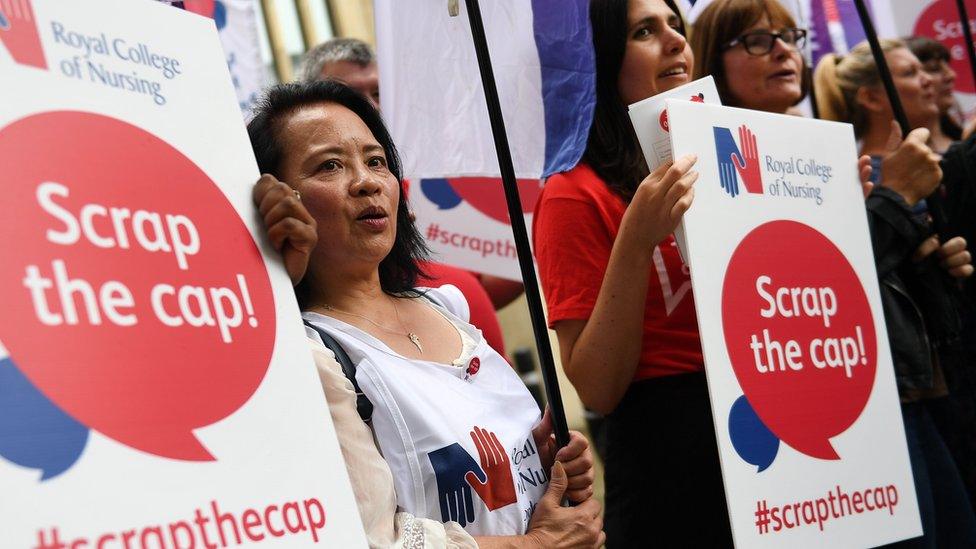Council workers call for 6.5% pay rise
- Published

Scotland's council workers are calling for a 6.5% pay rise.
Unison, Unite and the GMB, which represent 80,000 staff, said the call was in response to a real term cut to wages of 15% over the past 10 years.
In the Scottish Budget last month, the government proposed giving public sector workers earning less than £30,000 a 3% rise.
Cosla, the body which represents Scotland's councils, said pay awards had to be "sustainable and affordable".
The pay claim was submitted to Cosla to cover the period between 1 April 2018 and 31 March 2019.
The trade unions said their workers were entitled to either a £1,500 flat rate increase or 6.5%, whichever was greater, for those working a 37-hour week.
They said that the sum included an "element of restoration" for the years of the public sector pay freeze and that any increase should be applied after the Scottish local government living wage increase had been taken into account.

Analysis by Local Government Correspondent Jamie McIvor
The council unions are the second within a week to call for an inflation-busting pay rise.
The EIS has called for a significant pay rise for teachers, but has yet to specify just how much it wants.
The Scottish government proposes to give public sector workers earning up to £30,000 a 3% rise and those earning more 2%.
This figure will be seen as a benchmark.
Both teachers and council staff have a similar argument.
They claim they want a big rise to make up for the impact of austerity in recent years. Salaries, they argue, have not kept pace with inflation.
So is the council workers' pay claim realistic?
Many in council chambers will feel a degree of sympathy.
Councils are often quick to praise the dedication of staff who have worked hard through a period of pay restraint and internal restructuring to cope with tight budgets.
The problem is that councils have little practical control over the amount of money they have at their disposal. The biggest cost they can control is the cost of staff.
Money would need to be found to pay for such a big pay rise. Without more cash potentially that could mean bigger cuts and savings than councils currently anticipate.


Workers across the public sector have been subject to a pay cap
Head of bargaining at Unison Johanna Baxter said her members should be covered by the Scottish government's plans to lift the pay cap for public service workers.
She added: "Our local government workers members have suffered a real terms loss in pay over the past ten years of some 15%."
It is only right therefore that this year's pay settlement must protect workers from the sharp rise in inflation, start to reverse the many years of real terms cuts to wages through pay restoration, and protect the lowest paid.
"It is untenable for the Scottish government to starve local authorities of funding when it has received a £188m cash increase in its budget from Westminster."
Councillor Gail Macgregor from Cosla responded: "We will take the claim away and consider it carefully, obviously taking full cognisance that, as employers, our pay awards have to be both sustainable and affordable."
A Scottish government spokeswoman said: "Pay and other employment issues for local government staff are matters for local authorities.
"Despite the UK government's cuts to the Scottish budget, we have continued to treat local government very fairly.
"The 2018-19 local government finance settlement foresees an increase both in revenue and capital (11%) investment as part of a wider package of measures.
"Together with the additional power to increase council tax by up to 3% (worth around £77m next year), this will generate an increase of 1.6% in the overall resources to support services."